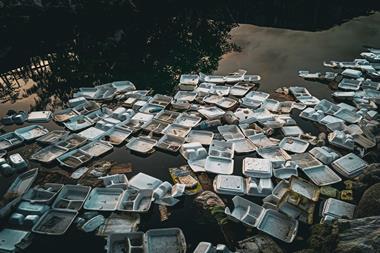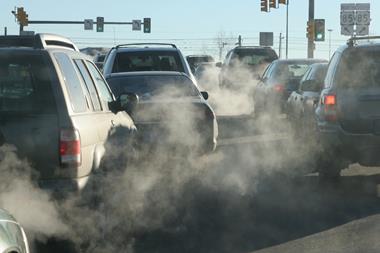Earlier this year, over 190 nations agreed to negotiate a legally binding treaty to address plastic pollution, energising efforts by governments, industry and international institutions to improve plastic recycling rates. The lack of a recognised system for tracing the origin of plastic products is part of the challenge of managing plastic waste. Now, researchers across social and chemical sciences have collaborated to highlight technologies that can associate plastic with its original manufacturer and how such technologies will reach their full potential when incorporated in governance frameworks for combatting plastic pollution.
‘If plastics are traceable in a simple fashion, legislators will, in principle, be able to put responsibility back onto the initial producer or indeed any actor in the downstream usage chain,’ says Christopher Barner-Kowollik from Queensland University of Technology in Australia, who led the collaboration. ‘Placing responsibility on producers and other actors will allow legislators to make them responsible for the pollution their products cause, akin to other end-of-life take-back schemes.’
Barner-Kowollik and colleagues propose that regulating plastics with chemical labels based on sequence-defined polymers is one way to resolve the anonymity of plastics traceability. For example, sequence-defined polymers can identify the type of plastic, as well as additives used in its manufacturing process. Sequence-defined polymers can also document what percentage of recycled plastic was incorporated into a product. Regulators could therefore use such information to assess the effectiveness of design standards and to ensure those standards meet mandatory policies set out by legislators such as the EU.
‘By providing information about the origin, types and amount of plastics being collected or found in the environment, tracing technologies would greatly facilitate the implementation of Extended Producer Responsibility schemes. This would encourage investment in infrastructure for the collection and processing of waste, while combatting illegal waste streams,’ says Antoine Buchard, from the University of Bath, UK, who researches catalysis and the synthesis of sustainable polymers.
Barner-Kowollik says a major challenge is stopping malicious actors from identifying potential loopholes. ‘A careful and coordinated international approach is of the essence, yet establishing it will require initial careful research into the underpinning international governance principles and subsequent coordinated approaches for implementation.’ While Buchard highlights that governments must identify ‘which stage of the plastic life to embed these technologies, to whom to pass on the cost and on whom to place the responsibility of the plastics’.
Barner-Kowollik hopes the team’s proposal will start discussions, not only on plastics traceability and governance, but more broadly on the need for closer collaborations between social and natural sciences.
References
H Johnson et al, Polym. Chem., 2022, 13, 6082 (DOI: 10.1039/d2py01180h)












No comments yet